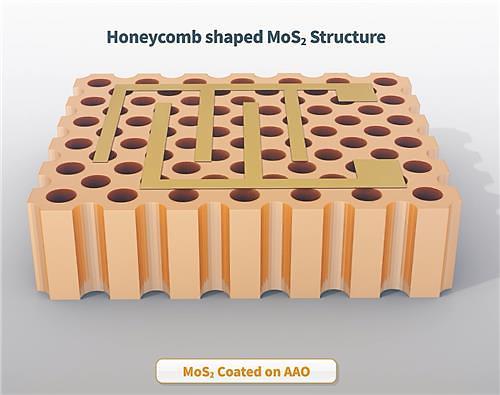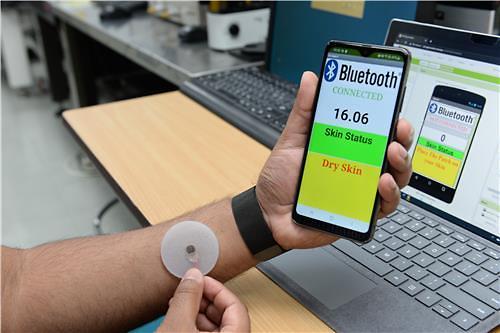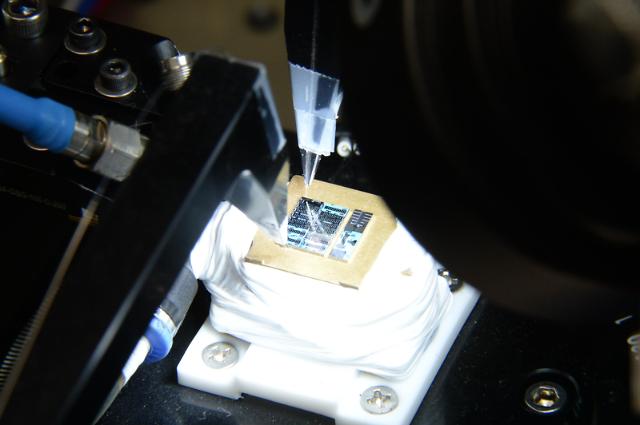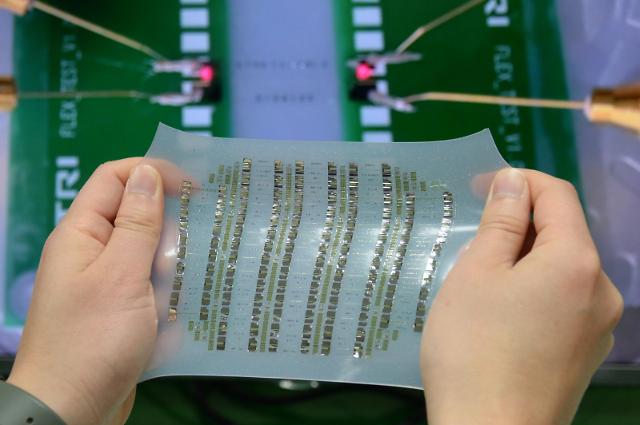
[Courtesy of Electronics and Telecommunications Research Institute (ETRI)]
The Electronics and Telecommunications Research Institute (ETRI) said in a statement on Wednesday that its research team has developed a wearable sensor capable of detecting human skin moisture using molybdenum sulfide (MoS2), an inorganic compound composed of molybdenum and sulfur, to create a honeycomb-shaped array of nanotubes.
The noncontact film-type sensor can be adhered to any surfaces to detect moisture from body parts such as fingertips, human breath and sweat. Created in a patch-type sensor, it can be adhered to human skin to detect changes in the amount of sweat during fitness workout sessions in real time.

[Courtesy of Electronics and Telecommunications Research Institute (ETRI)]
ETRI professor Choi Choon-ki said that the institute has applied for a patent. He said that commercialization is possible in two years if the technology is transferred. A research paper was published in the March issue of Applied Materials & Interfaces, an international scientific journal.
The noncontact sensor could be widely used on devices such as ATMs, digital information signage boards and elevator buttons that involve direct contacts with a random population. Such contact-avoiding technologies received attention as people find noncontact ways in operating devices to prevent COVID-19 infections.
To prevent infection through direct contact with elevator buttons and other button-operated devices, special anti-virus films containing copper are widely used.
Copyright ⓒ Aju Press All rights reserved.





View more comments